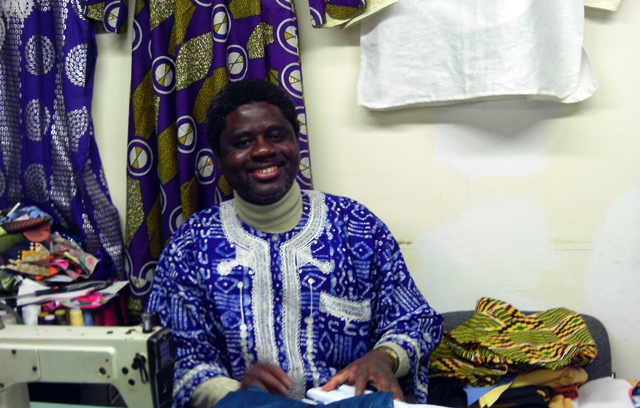Africans Find a Home in the Bronx
By Phelicia Francis
They are a people once enslaved and forced to make a gruesome journey across the Atlantic Ocean to work without pay. Yet, today their descendants are to making that journey to America, to the Bronx, in great numbers. Only this time they come in search of prosperity, in search of hope.
Whether they come from the East or the West, more Africans are choosing to make the Bronx their home.
According to the 2009 Census, there has a significant increase in the number of Africans moving to the Bronx, says Williams Bosworth of the Bronx Data Center. The influx can be seen particularly in the west Bronx areas, including University Heights, Grand Concourse, Mott Haven, Williamsbridge and East Tremont. “There has been a steady increase, in fact,” says Bosworth. “The average increase for these areas is 7.3 percent.”
While the Bronx is home to more people from Ghana than any other U.S. county, says Bosworth, a steady migration of Africans from other countries on the continent is also evident.
“Before this, what we had was people from Ghana and Nigeria,” says Djounedou Titikpina, president of the African People Alliance and a national of Togo. “However, today we see those from Togo, Uganda, Mali, Benin, Senegal and Ivory Coast coming to settle here.”
In the last two decades, the Bronx has become the home to the largest population of African immigrants to the United States, according to the New York News and Features. Statistics from the Bronx Data Center also reflect this, showing that the African-born population is an estimated 44,484, and could be much higher.
Settling in the Bronx has been difficult for the many African families dispersed across the Bronx.
“Three years ago, when my father told me that we are moving to America I was extremely happy,” says Rosemond Adawoo, a 20-year-old Ghananian national. “However, when I got here, I was surprised. It was not what I expected. It felt as if my whole life was turning upside down. People were not friendly towards me,” she says. “It seems like they were more afraid of me, and not knowing how to speak English did not help.”
Djounedou Titikpina agrees that coming to America poses several challenges, especially for young children. One of the greatest obstacles faced by these children lies in the language barrier.
“Those that come from the villages in Africa do not know English,” he says. ” In most cases, what they know is Twi or Ga. Others may speak Fulani among, many other languages.”
Titikpina also says that African children living in America are challenged by the level of civilization here, as they are not exposed to such a lifestyle in Africa. “In some villages they don’t even have light,” he says. “They can not cross the streets, because they don’t know about street lights.”
He believes that these children have to go through a socialization process again, only this time they are learning a new culture, a new way of life, a new way of surviving.

